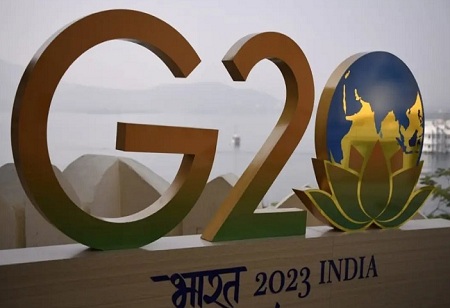Power secretary Alok Kumar, the G20 Energy Transition Working Group Committee has reached a consensus on the importance of 'universal access' to modern, sustainable energy and its priority in the energy transition, which is considered as a key area of potential success for India's presidency. Although solar energy was once seen as the most crucial, other possibilities such small hydro and wind have also emerged recently. On the margins of the third leg of the group meeting, Kumar stated, "India is
representing the voice of the global south and our priority is that energy transition is done in a manner that we fulfil our energy requirements, ensure energy security, and nobody is left behind."
The working group's discussions centre on six key issues: the energy transition's technological gap, mobilising low-cost funding, energy security and diversified supply chains, fuel for the future, energy efficiency initiatives, and just energy transition. He claimed that the group decided to support green and nearly clean hydrogen as well as biofuels as the fuels of the future. He added that technologies including alternative battery chemistry, high-efficiency fuel cells and electrolyzers, modular reactors, and carbon collection and utilisation have also been agreed upon. Meetings that are being organised prior to the fourth and final leg would cover discussions on low-cost financing, he noted.
"We are negotiating with developed countries regarding what they had promised at the time of the Paris Agreement, that they need to give more concessional funding, long-term low interest funding to developing countries for deployment of clean energy tech," he said. In the joint communique's preamble, there are discussions about the transition to clean energy and climate change.
